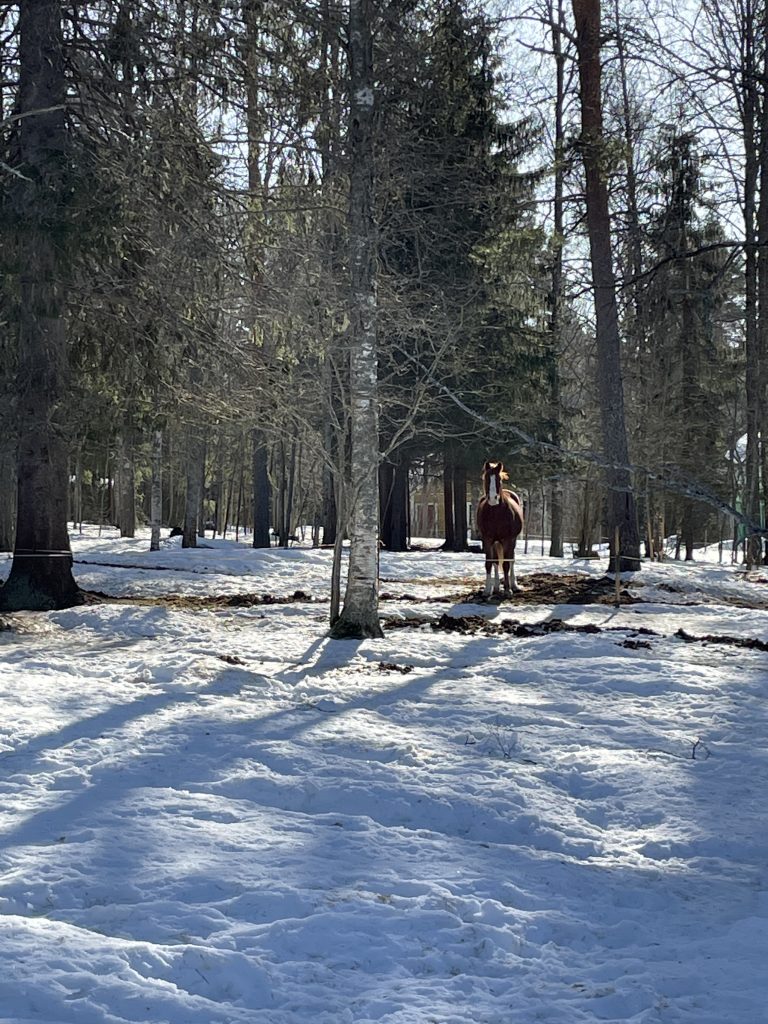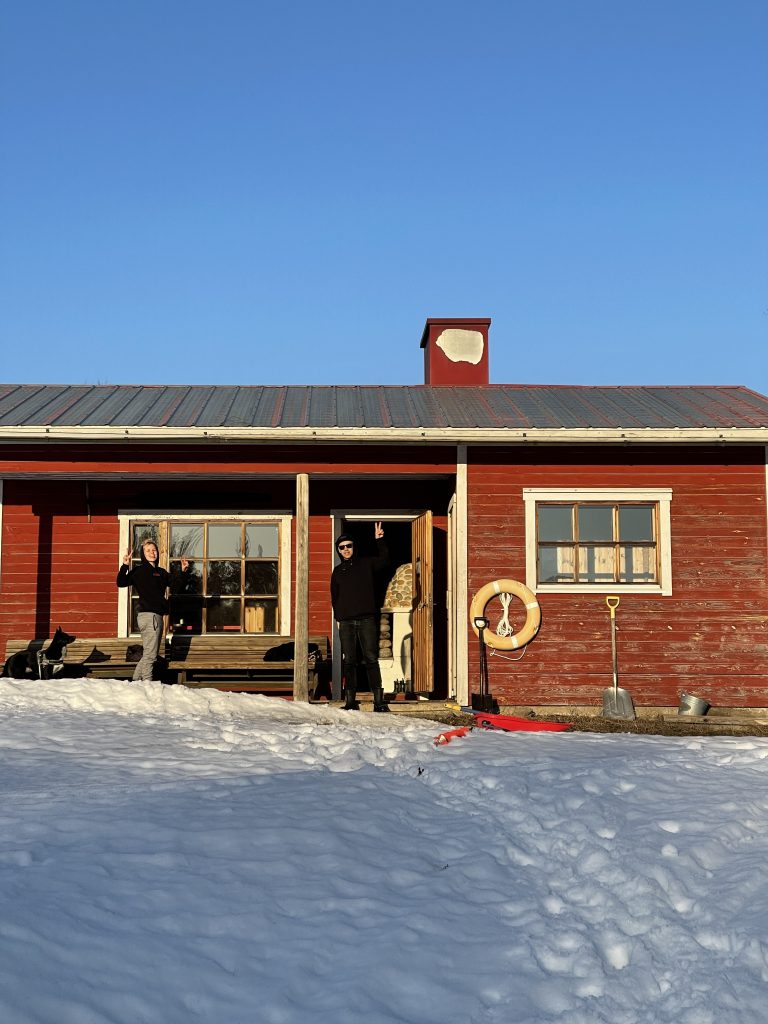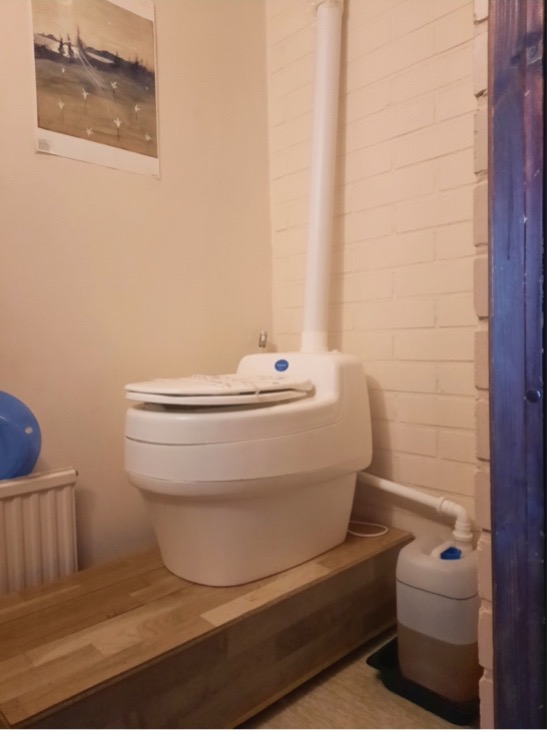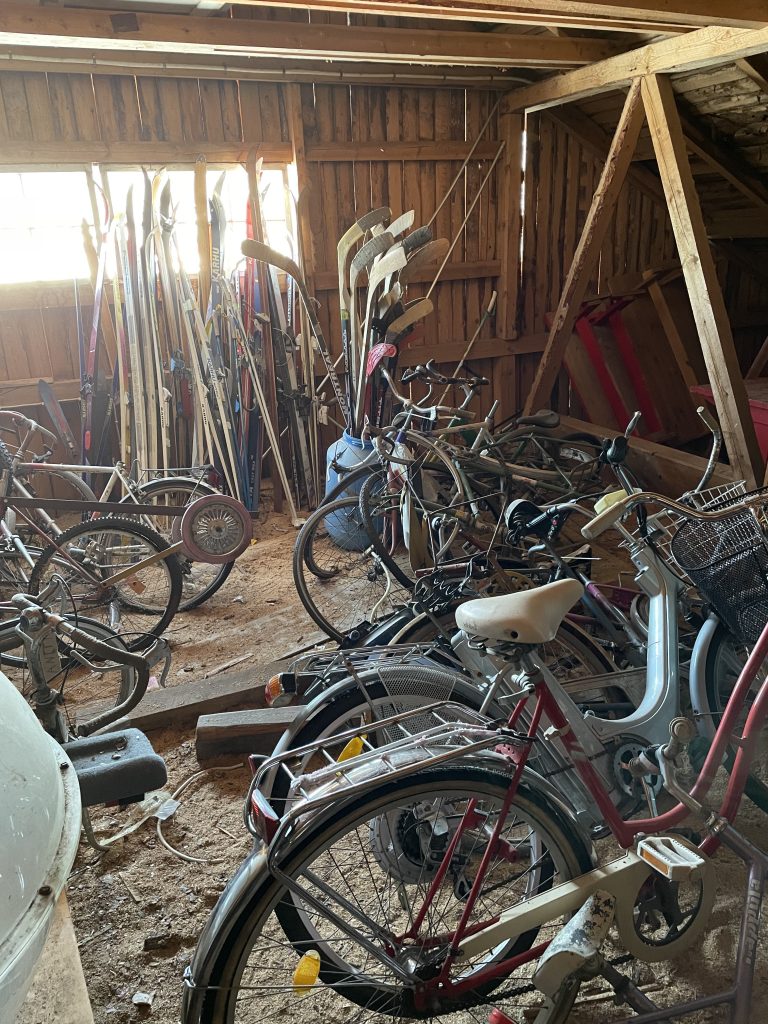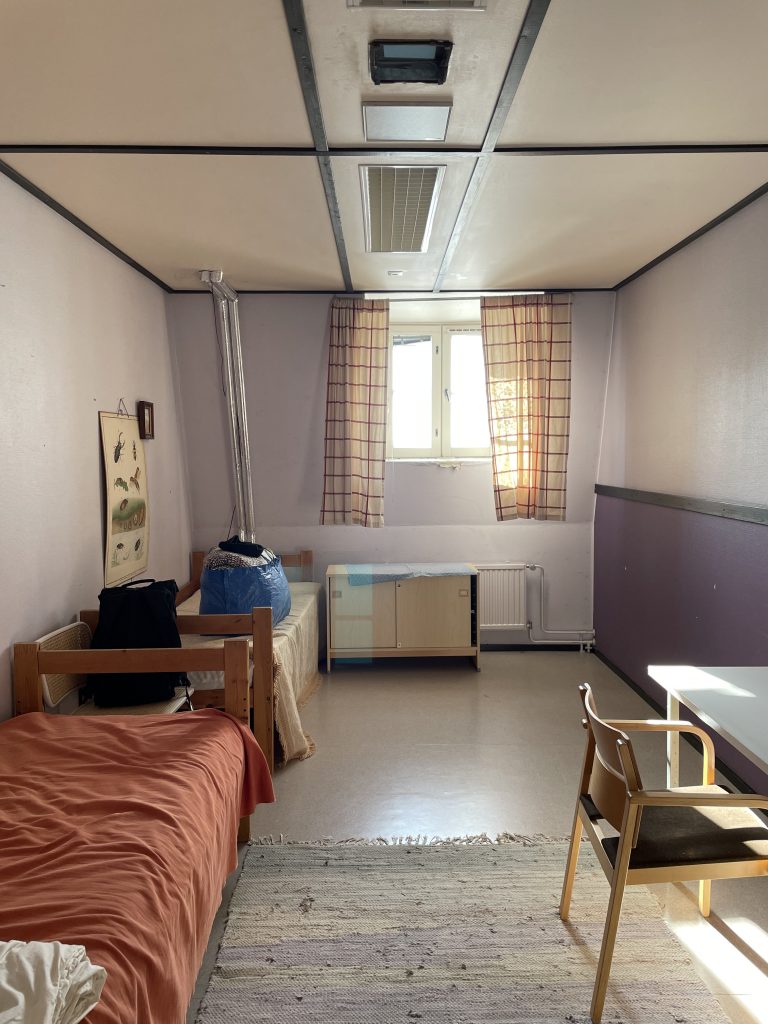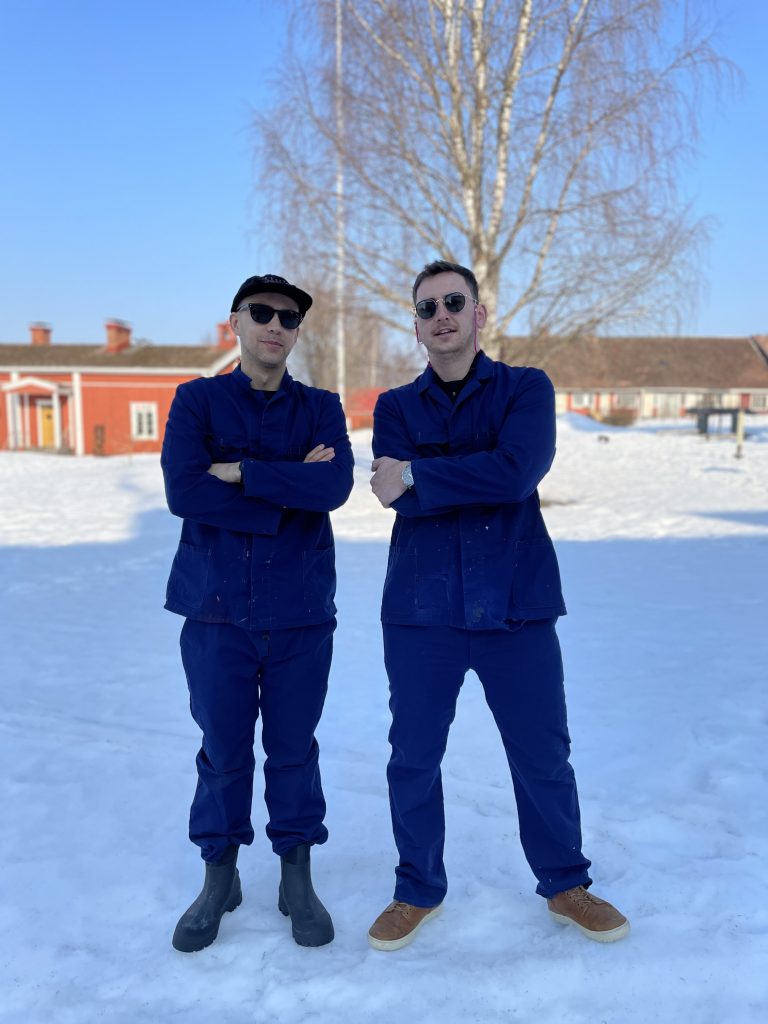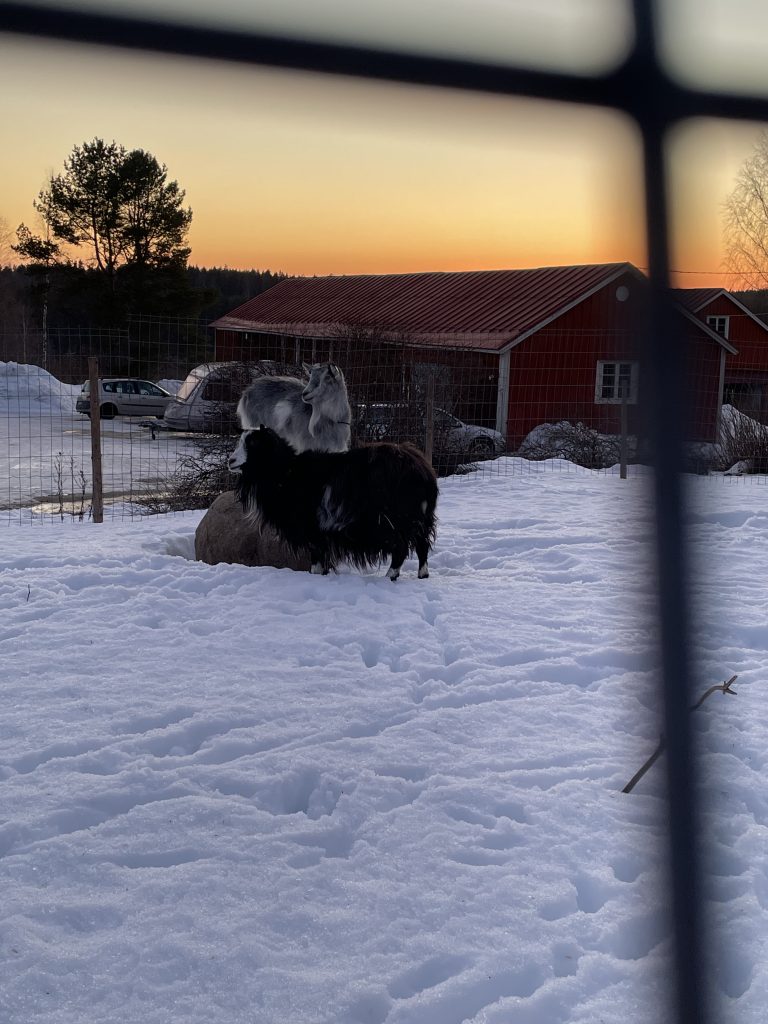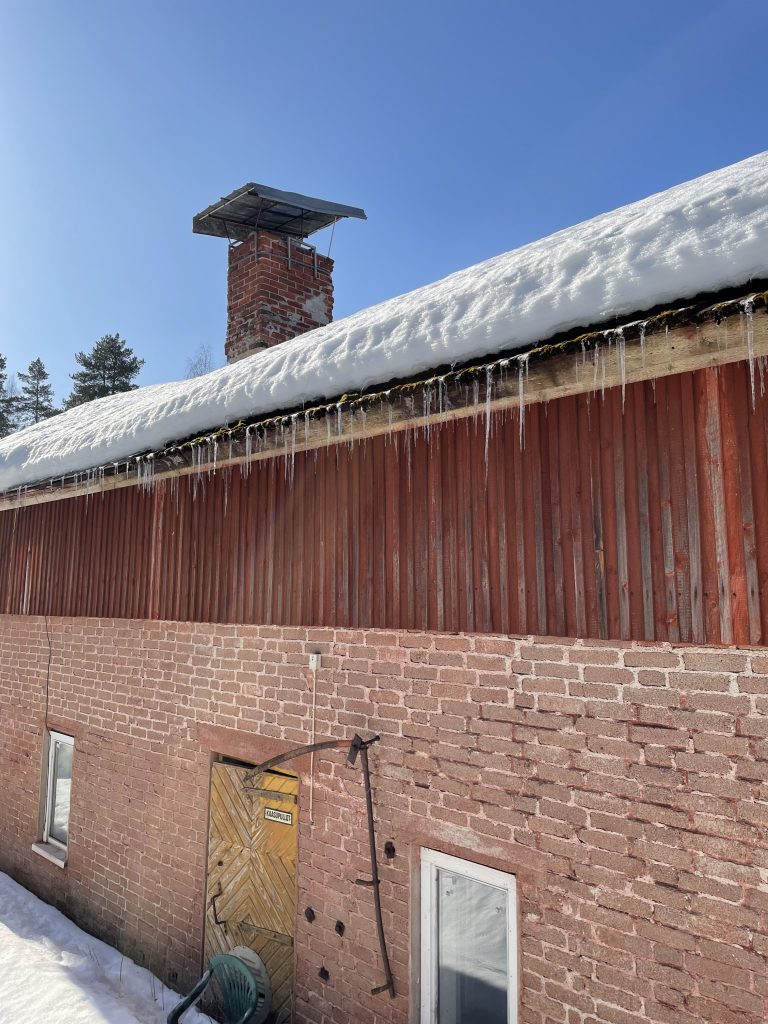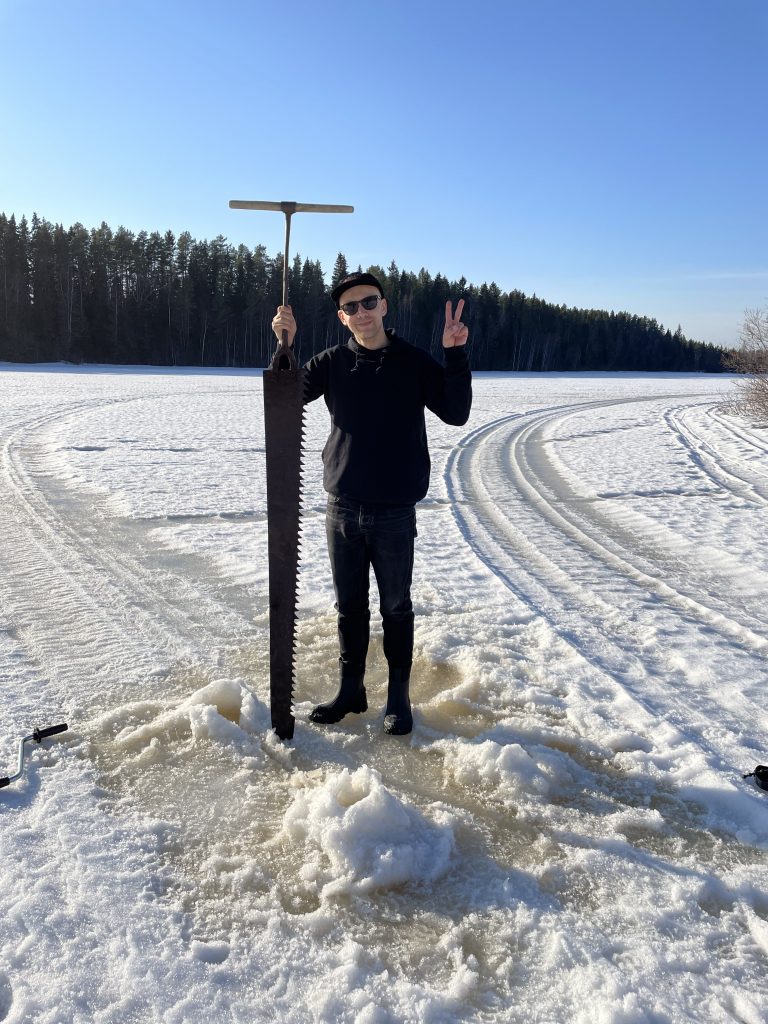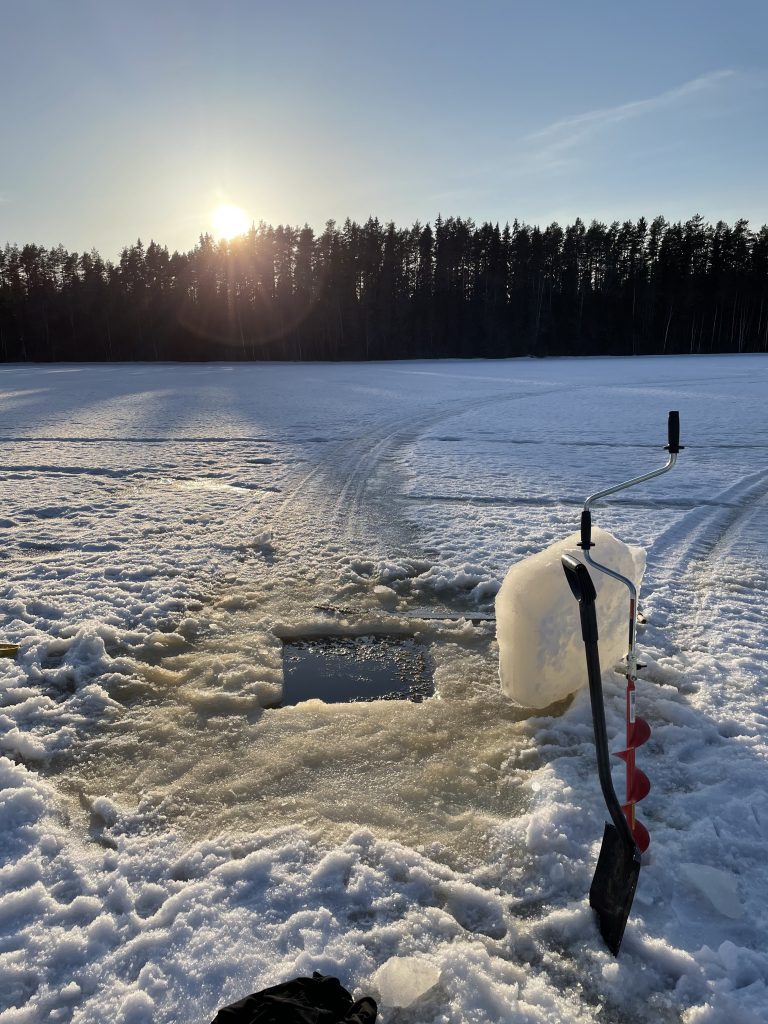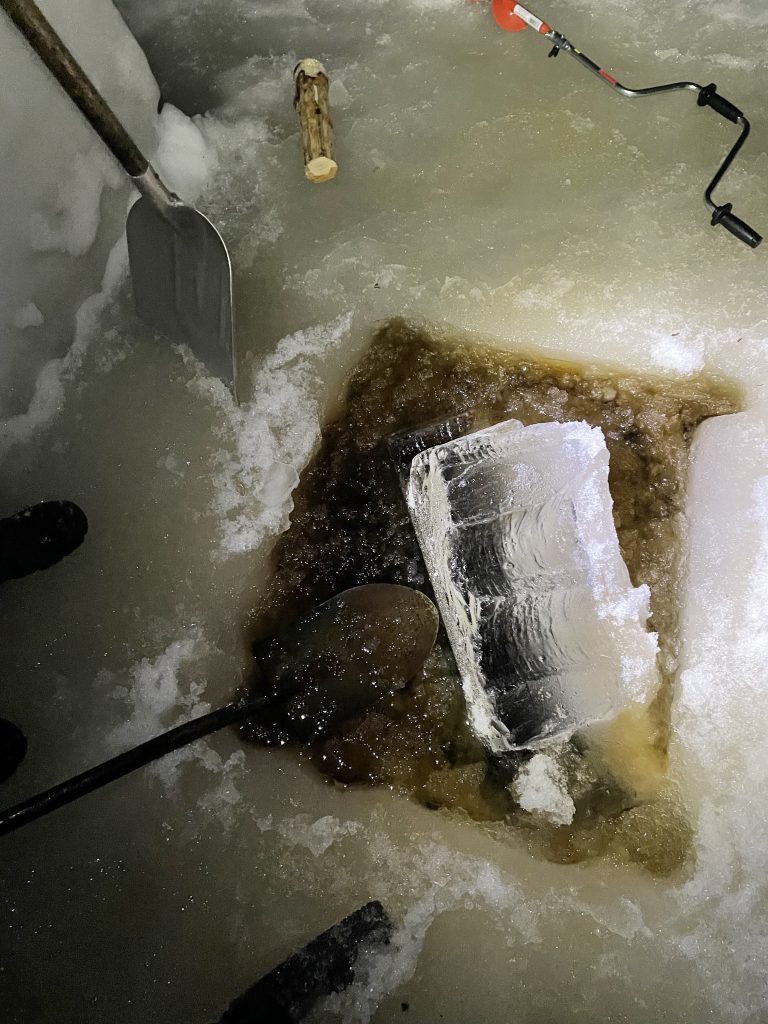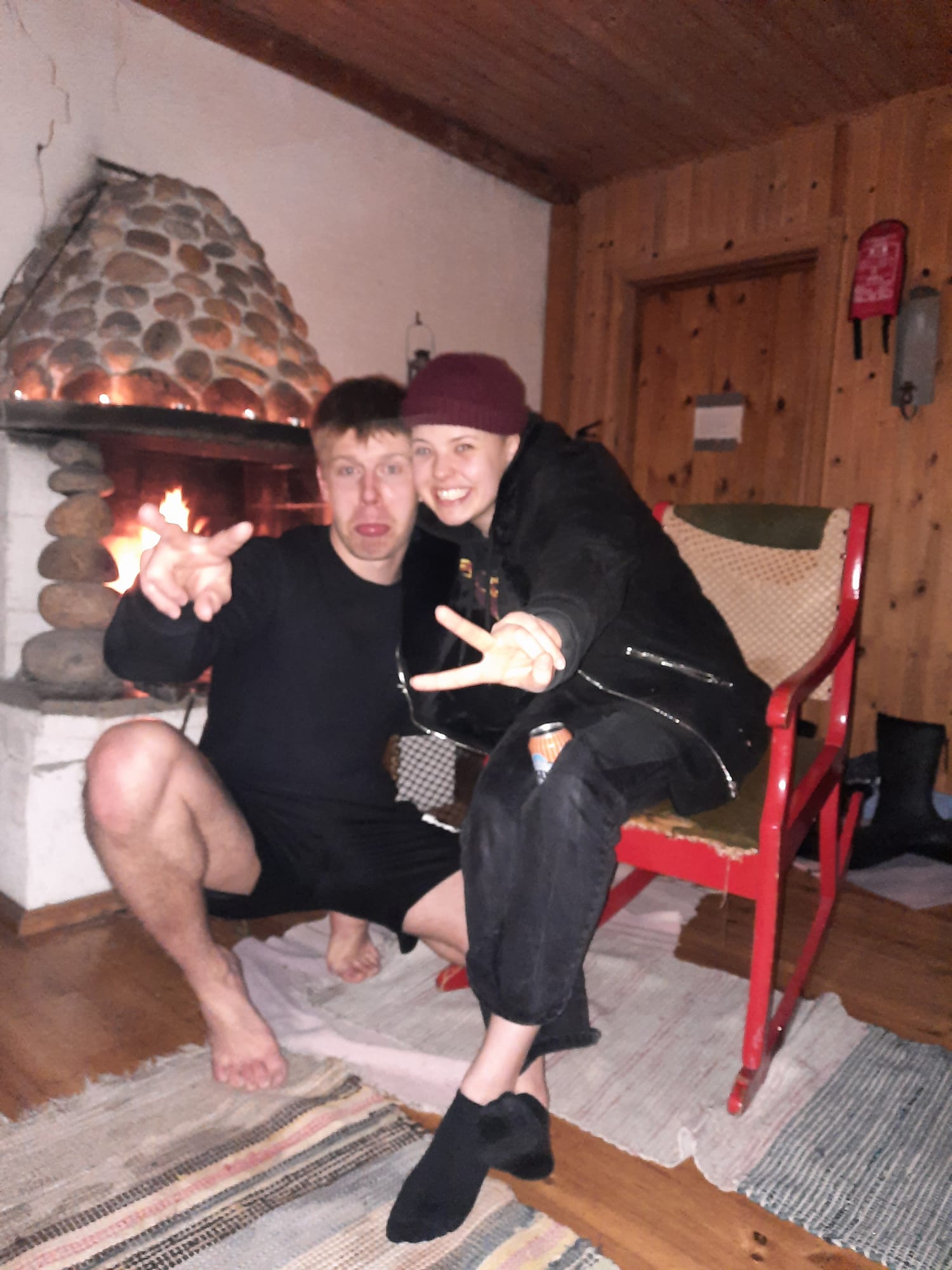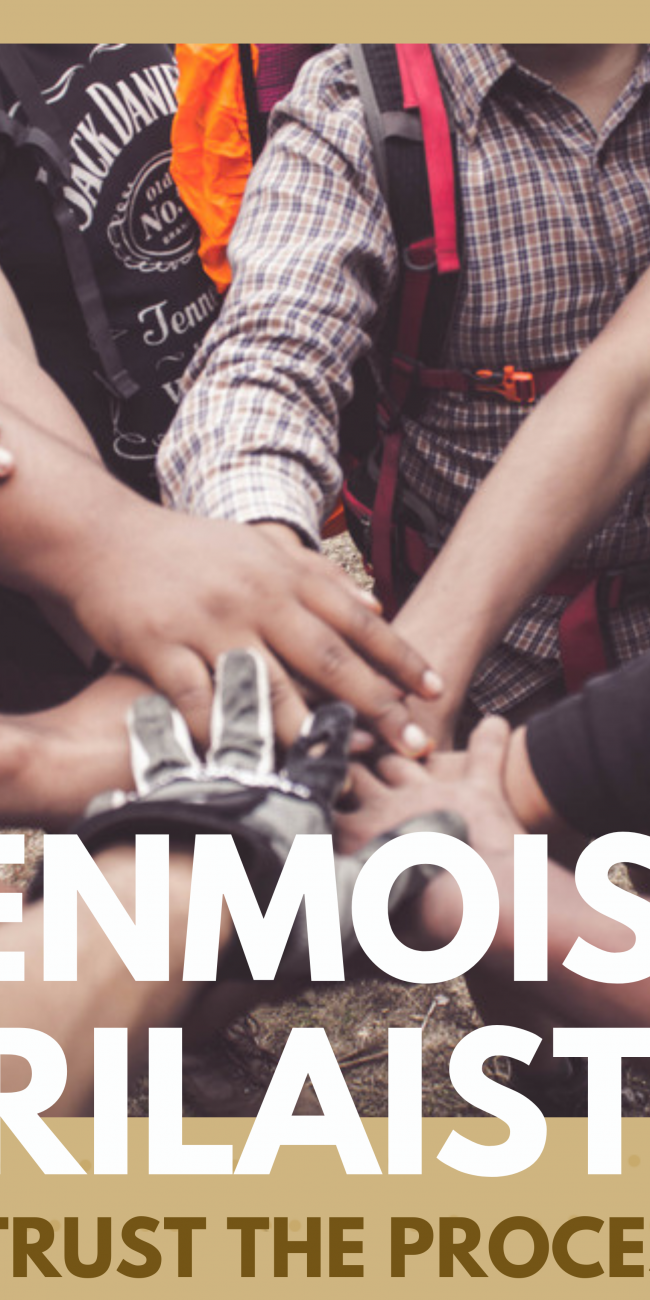
FROM BUBBLE TO BUBBLE
Esseen tyyppi: Akateeminen essee / 3 esseepistettä.
Writers: Esme Luhtala, Kamil Wojcik
This essay is a reflection on Flip Solution’s learning journey.
The essay is divided into 5 sections. In the Community part, the focus is on the general aspects of communities. The second part, Learning by doing, focuses on an interesting experiment to reach a more sustainable Ecovillage. How did it start? dives into the beginning of Keuruu Ecovillage’s story and the combination of association and cooperation opens the legal organizational structure of Keuruu Ecovillage. Finally, Similarities under magnifier questions, and tells about the similarities between team learning institutes, such as Tiimiakatemia & Proakatemia, and Keuruu Ecovillage.
Community
According to Oxford Languages, a community is a group of people living in the same place or having a particular characteristic in common. Another definition from the same source says that it’s a group of people living together and practising common ownership, or a particular area or place considered together with its inhabitants. (Oxford Languages, 2020)
Many communities nowadays are created online, although they cannot replace these offline. Online communities perhaps can support these which take place in real-world and connect people in real life, although the latter is certainly more important. It’s a fact that it’s easier to contact cousins in Switzerland, but it’s getting much harder to talk with our spouses at breakfast because their attention is taken by the phone. It’s hard not to mention Facebook (currently under the name Meta Platforms Inc.) when writing about online communities. It’s important to think about what the business form at the core of the community is. Meta Platforms, Inc is a corporation whose profits come mainly from advertising. One could argue whether it’s Facebook building communities (as they claim in their mission statement) or the community (read: customers) building Facebook’s wealth. Keuruu Ecovillage has a cooperative, which makes a tremendous difference. Cooperative doesn’t aim to only generate profit, but instead to create value for its members. It doesn’t treat members as customers and can prioritise them. That’s not the case with a public corporation that needs to take care of its shareholders.
It wasn’t an easy decision to pick where to go and what we want to learn. In fact, there has been a lot of confusion about what the learning journey is supposed to be within the organizing team, and it caused tensions and concerns within the whole team. Looking back, it would be wise for the team to first consider what are the needs within the team. For example, if the team has done a lot of basic manual work, it might be worth thinking about creative/innovative work, or if the team has focused mainly on learning and research it would be a great opportunity to really reach out to customers and gain experience in customer service. These are just examples, and each team is different, with their own unique needs. Flip Solutions in the end decided to spend 4 days living and working in Eco Village in Keuruu. In exchange for food and a place to stay, the team helped with different tasks that waited to be done. From basic cleaning, and organizing, through light construction work as well as digitalization of documents. It’s fair to say that it has been the most time ever that Flip solutions have spent together, and it has surely been a valuable experience in building trust between the members of the team.
“Ecovillages are the newest and most potent kind of intentional community. They unite two profound truths: Human life is at its best in small, supportive, healthy communities. The only sustainable path for humanity is in the recovery and refinement of tradition community life. Ecovillages are the most promising and important movement in all history”
Robert J. Rosenthal Professor of Philosophy Hanover College.
How is life different in Ecovillage? Firstly, the community in Keuruu is a manifesto and sort of rebellion against the destructive and unsustainable modern lifestyle. Ecovillages are models of low-impact, sustainable and satisfying human settlements. Currently, around 30 people live here. Its principles are to offer homes for people and show a real-life example of how to live more sustainably. Word sustainable takes a new level here. People seek to reduce their ecological footprint through voluntary simplicity and the implementation of ecological design ideologies. While people living in the city take pride in recycling and buying new clothes second-hand, here the consumption is reduced to an absolute minimum. Everything is saved and fixed and the focus is on the living. Living full life where distractions of the capitalistic world are mostly removed.
In conversation with Fanny, who has lived in Keuruu Ecovillage for over 5 years, came up with many motivations for living in this type of community. First of all, it’s partly about changing the bubble. In, the so-called city life, people interact with a lot of different people, but rather on the surface level. While we need an authentic and deep connection to live a full life, it’s easy to let this slip with all the distractions of the modern fast-paced life. There is no doubt that living in the ecovillage is own bubble. Many in the community draw their inspiration from different measures from ecological, social, and spiritual concerns. Together, villagers seek to develop a model of sustainability appropriate to its own cultural, ecological, and economic context. This place offers opportunities for members to find their own values and move away from the expectations of others. Value-based living is one of the key elements of human happiness (Harris, 2015). According to Fanny, her past 5 years have been a process of healing and letting go of the past. Even though, Keuruu Ecovillage is a politically and religiously unattached community, finding a deep spiritual connection is a part with significant meaning for many people in life. Embracing a slower pace of living has helped many to notice new simple pleasures and therefore enjoy and live a more fulfilling life.
Villagers seek to integrate ecological design principles and technologies with inclusive, participatory social structures. It is possible by taking a step back and continuous learning. It has not been perfect right from the start, and it has a long way to go, nevertheless, progress is impressive considering the modest resources. Currently, the facility’s electricity sources are based on renewable energy sources like wind and solar power. Heating used to be oil in the past, but currently, it’s wood chips. The community grows and produces a lot of its own food and recycles everything. Many of these are easy to imagine, but waste management is especially interesting.
Learning by doing
A few years back, Ecovillage decided to create an experiment and see e if it’s possible to live without a black water sewerage system and truly manage all the waste themselves. Currently, there is only a greywater sewerage system. To explain shortly:
Blackwater: is the wastewater from bathrooms and toilets that contains faecal matter and urine. Water from kitchens and dishwashers is also considered blackwater due to the contamination by pathogens and grease (Department of Industry, Science, Energy and Resources 2013, Your Home, Australian Government, Canberra). It is also referred to as sewage or brown water and can carry disease and bacteria, both of which could be harmful.
Greywater: is the wastewater that comes from sinks, washing machines, bathtubs, and showers. It contains lower levels of contamination, making it easier to treat and process.
Recycled greywater is commonly used in irrigation and constructed wetlands – if no harmful chemicals are present. Greywater that contains food particles can nourish plants, it can also be used for washing and flushing toilets. Where water is scarce – greywater is valuable.
At Eco Village all toilets are dry, and the urine and faeces are collected separately. The urine is accumulating in 10l tanks by the toilet while faeces is in the basket inside the toilet. Both when full is taken away by the villagers and brought to the biowaste containers where they are collected and processed. Especially urine is very good manure because of its high phosphorus levels. It can be spread directly to the fields. Although it’s usually diluted with water (ratio 1 part urine to 3 parts water). While the stool is good as well, it needs to be composted for a couple of years before it’s ready to be spread to the fields. Because of the processing time difference, it is convenient to separate the two right away in the beginning. The human body is the greatest human source, and it is an amazing process to give energy back to mother earth.
How did it start?
Activist Marketta Horn was interviewed in TV program Minä ja Sarasvuo [Me and Sarasvuo] Autumn 1996. She talked about her dream to establish an eco-monastery in Finland. Soon after she received around 200 phone calls from people with similar interests. It was clear that there was a need for something like that. Bus tours around Finland searching for suitable ecovillage properties started at the beginning of 1997. The group of interested people split in two and within the same year, they founded two ecovillages. One ecovillage in Ähtäri nowadays is called Gaia and Keuruu Ecovillage. (Jääskeläinen, 2022)
Liisa Jääskeläinen, one of the co-founders, for the time being, Senior Advisor in Environmental and International Education at the National Board of Education [later Councellor of Education, opetusneuvos], moved to Keuruu from Helsinki to found Finland’s oldest Ecovillage. Jääskeläinen’s interests in establishing an ecovillage were related to concreteness. In her work, she was lecturing a lot about environmental matters and there was a lot of talk at the governmental level about wrong consumption- and production patterns as well as concerns about biodiversity and climate change. Instead of just talking, she longed for concrete and practical examples of how to make a sustainable lifestyle a reality. The government didn’t seem to be taking action, so she wanted to be at the forefront of setting an example for others. She wanted to turn theory into reality. And for this, Ecovillage offered an abundance of practical possibilities. (Jääskeläinen, 2022)
The founding members, previously unknown to others, were passionate and brave world-healers and idealists. Many of the founders had an important role, a lot related to their previous work experience. Liisa Jääskeläinen, as a government official, was responsible for writing different kinds of contracts and documents. For ‘bunch of hippies’ it was also beneficial to have someone who had experience in working with different kinds of authorities. There was also experience in accounting, managing money and keeping the numbers in line. The founding team had also one electrician who had the skill and knowledge to take the lead in maintenance and various premises. Among other things, there were also skills in farming, communities and good speaking skills along with notoriety.
Combination of association and cooperative
Keuruu Ecovillage Association and Keuruu Ecovillage Cooperative were founded in 1997 by a group of eco-spirited people. A combination of the two different organizations provides a flexible variety of different financial possibilities. Examples of these are the right of the association to receive donations and the right of the cooperative to conduct business, receive agricultural subsidies, and utilize tax arrangements. Originally the association was fully non-profit (yleishyödyllinen), but nowadays on the advice of the tax authorities, it is only partly non-profit. This is because of the rents paid to the association and because new residents are going through a selection process before moving in. Since residents and cooperative are both using the facilities of Ecovillage, they pay rent to the association which owns the property and land. The combination of association and cooperation is fully legal but requires knowledge of administration, legislation, and governance. (Jääskeläinen, 2022)
Everyone living as a villager at Ecovillage is automatically a member of the Keuruu Ecovillage Association and shareholders in the Keuruu Ecovillage Cooperative. To maintain mental and legal equality between members, no individual has the right to own more than others. Both, the association and the cooperative have so-called ‘puppet boards’. These boards follow the decisions made together with the whole community in the Monday meetings, where every villager is welcomed. Meetings have an agenda, but everything is being handled via dialogue and NVC. Voting might sometimes be necessary, but the goal is always to find a common consensus. If required by the nature of the decision, boards of the association and cooperative will make decisions legal by organizing official meetings where they ‘decide’ on the subject in accordance with the community’s decision. (Jääskeläinen, 2022)
Similarities under magnifier
Whether it is a living-, work-, or some other kind of community, communities always shape themselves according to their members and possible leader figures. Even though Ecovillage is constantly developing its operating models, the handprint of the founding members can still be seen in many places, from organisational level to smaller details. It may seem surprising that Ecovillage and Proakatemia have much in common, but when thinking about the studying trends of the time and the fact that there was an enthusiastic Senior Advisor from the National Board of Education on the founder team, it makes sense.
The Fifth Discipline by Peter Senge, a book referred to be the ‘bible of team learning’ was published in 1990. Tiimiakatemia at Jyväskylä was founded 1993, Ecovillage was founded 1997, and Proakatemia was founded 1999. In the magazine Aikuiskasvatus [Adult education] (1998), there was an article in the new about learningsection: ‘Tiimiakatemia – markkinoinnin, oppimisen ja yrittäjyyden keskus’ [Tiimiakatemia – Center of Marketing, Learning and Entrepreneurship]. Based on Jääskeläinen’s interview, it wouldn’t have been surprised to see a similar article with a title: Ecovillage – Center of Sustainable Lifestyle, Community and Learning. All this might of course just be a coincidence, but let’s move to the similarities we encountered.
Ecovillages’ value cornerstones are communality, learning and doing things together, as well as making decisions together. For quality communication between villagers and for the community to function without hierarchy, they use non-violent communication (NVC) and dialogue. Marshall Rosenbergs NVC is a communication tool built around four key elements, observation, feelings, needs, and requests. NVC’s purpose is to create empathy between different parties in the conversation. After having empathy, it should be easier to find a solution satisfying all participants’ fundamental needs. (Rosenberg, 1999)
Just like in many teams at Proakatemia, in Ecovillage NVC and dialogue go hand in hand. Dialogues’ goal is not to win, but to generate new knowledge and share a common understanding. According to Isaacs William, successful dialogue requires listening without resistance, respecting others and the uniqueness of their thinking, honest speech without hurting others, and waiting for their own turn without interrupting or creating expectations. (Isaacs, 1999)
Please enjoy random snaps from our trip
- Look at my horse, my horse is amazing!
- Happy evening at the Sauna
- Le Toilet
- Random
- One of the rooms where we were staying
- Clothes were once used by Työväenlaitos people
- Goats & sunset
- Winter stays here a little longer
- First time for everything.
- We made it!
- Except there was another ice layer to remove…
- Chilling at the night
Sources:
Beck, J. 14.06.2016. Ignoring people for the phone is new normal, Read on 02.04.2022. https://www.theatlantic.com/technology/archive/2016/06/ignoring-people-for-phones-is-the-new-normal-phubbing-study/486845/
Harris, R. 2015. Acceptance Commitment Therapy. The Values-Focused vs The Goals-Focused Life, Released on 25.08.2015. Watched on 28.03.2022
https://www.youtube.com/watch?v=eiPxLpYlw4I
Isaacs, W. 1999. Dialogue: The Art Of Thinking Together. 14.09.1999. New York: Currency.
Jääskeläinen, L. Councellor of Education and co-founder of Keuruu Ecovillage. 2022. Interview on 27.3.2022. Interviewer: Luhtala, E.
Kajanto, A. 1998. Tiimiakatemia – markkinoinnin, oppimisen ja yrittäjyyden keskus. Article. Aikuiskasvatus 2/89, 122-127.
Meta Platforms, Inc. February 2, 2022. Meta Reports Forth Quarter and Full Year 2021 Results. (PDF). Read on 02.04.2022. https://s21.q4cdn.com/399680738/files/doc_financials/2021/q4/FB-12.31.2021-Exhibit-99.1-Final.pdf
Oxford Languages. 2020. Oxford Dictionary of English. Third edition. Oxford: Oxford University Press.
Rosenberg, M. 1999. Nonviolent Communication: A Language of Compassion. 1.1.1999. United States: Puddle Dancer Press. https://s21.q4cdn.com/399680738/files/doc_financials/2021/q4/FB-12.31.2021-Exhibit-99.1-Final.pdf


